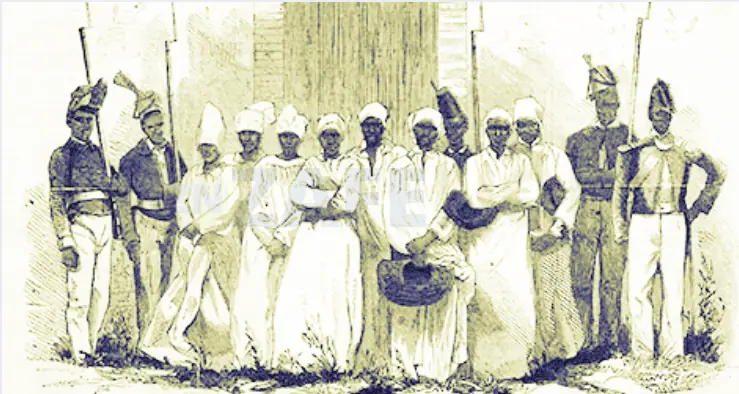Yes, it is possible for an American to obtain Haitian citizenship.
In 2012, Haiti introduced legislation allowing dual citizenship, enabling individuals of Haitian descent to also hold citizenship in another country.
To acquire Haitian citizenship, applicants need to provide evidence of their Haitian heritage, such as a birth certificate or an official copy of the birth register, and submit a sworn statement declaring their intention to reclaim citizenship.
However, the process may be challenging due to issues within Haiti’s civil registry system and limited consular resources.
Despite these hurdles, it is a significant pursuit for those wishing to reconnect with their Haitian roots and contribute to the nation’s progress.
History of Haitian Citizenship

One may trace the history of Haitian citizenship back to the country’s colonial period and subsequent independence in 1804. The concept of Haitian citizenship has undergone several changes over the years, with significant amendments being made to the constitution.
Dual citizenship, for instance, was initially prohibited under the 1987 constitution. However, in June 2012, amendments were originally approved, legalizing dual citizenship and removing the previous prohibition.
This change aimed to strengthen ties between the Haitian diaspora and the country, fostering increased investment and engagement from Haitians living abroad.
The historical background and evolution of nationality laws in Haiti reflect a complex interplay of racial, legal, and social factors that have shaped the concept of Haitian citizenship.
Legal System and Citizenship

An American can become a citizen of Haiti through the legal process of naturalization. Since the legalization of dual citizenship in Haiti in June 2012, Haitians are now allowed to hold foreign citizenship.
The New Constitution aimed to strengthen ties between the Haitian diaspora and the country, encouraging investment and engagement from Haitians living abroad.
However, conditions for losing citizenship in Haiti included naturalization in another country or working in a political position for a foreign government before the 1987 Constitution amendment.
To reclaim Haitian citizenship, individuals must prove their Haitian origin with a birth certificate or official copy of the birth register and submit an affidavit stating their intention to reclaim citizenship.
Nonetheless, Haiti’s dysfunctional civil registry system and weak consular capacity make obtaining documentation difficult, with unregistered births estimated to be over 10%.
Present-Day Citizenship Requirements

The evolution of Haitian nationality laws has seen significant changes. These changes range from racial laws prohibiting marriage between Haitians and white foreigners to amendments allowing married women to retain their nationality and simplifying the process of repatriation.
Present-day citizenship requirements in Haiti have also evolved. In 2012, the legalization of dual citizenship enabled individuals born abroad to Haitian parents to hold multiple nationalities.
To reclaim Haitian citizenship, individuals must prove their Haitian origin with a birth certificate or official copy of the birth register. They also need to submit an affidavit stating their intention to reclaim citizenship.
However, there are challenges to reclaiming Haitian citizenship. One major challenge is the lack of immediate birth registration by the Haitian government. It is estimated that over 10% of births go unregistered.
Another challenge is obtaining the necessary documentation. Many people rely on sources other than Haitian consulates due to questions about their effectiveness and accessibility.
Haitian Diaspora and Citizenship
Through the procedures set forth by the Haitian government, Americans can obtain citizenship in Haiti.
The amendment to legalize dual citizenship in Haiti aimed to strengthen ties between the Haitian diaspora and the country, encouraging investment and engagement from Haitians living abroad.
Individuals seeking to reclaim Haitian citizenship must provide proof of Haitian origin, such as a birth certificate or an official copy of the birth register. Additionally, children born abroad to a Haitian parent are eligible to apply for Haitian citizenship.
However, challenges in obtaining proof of Haitian citizenship exist due to a dysfunctional civil registry system and weak consular capacity.
Recognizing the historical background of Haiti, including its shift from a wealth-based to a race-based class structure during its colonial period and the first successful slave rebellion in the Americas during the Haitian Revolution, underscores the significance of the diaspora in the context of Haitian citizenship.
Noteworthy Cases of Citizenship
Discussing noteworthy cases of citizenship, an American successfully reclaimed Haitian citizenship by providing documented proof of Haitian origin.
The Immigration and Refugee Board’s decision highlighted the importance of having official documentation, such as a birth certificate or official copy of the birth register, to prove Haitian origin.
This case demonstrated that individuals born abroad to Haitian parents can navigate the process to reclaim Haitian citizenship. Furthermore, the legalization of dual citizenship in Haiti in 2012 allows individuals to hold foreign citizenship while being recognized as Haitian citizens.
This American’s successful reclamation of Haitian citizenship exemplifies the potential for others in the diaspora to pursue a similar path, especially with the removal of the prohibition against holding foreign citizenship and the recognition of dual citizenship in Haiti.



